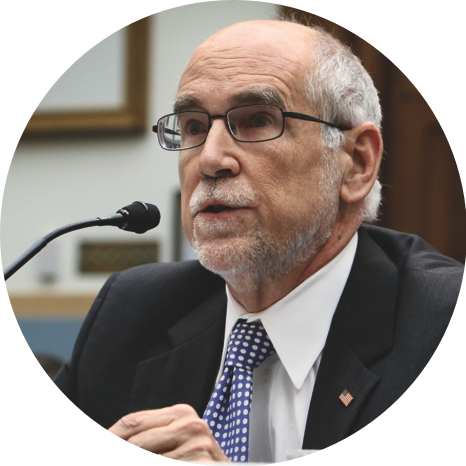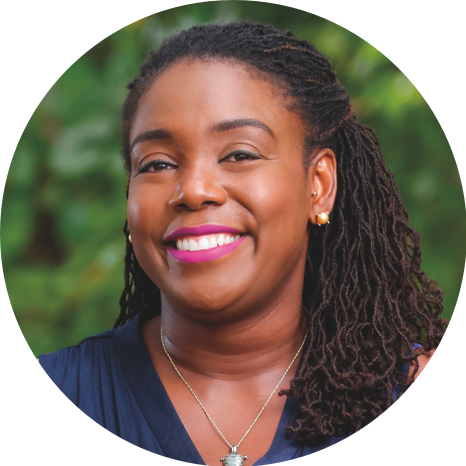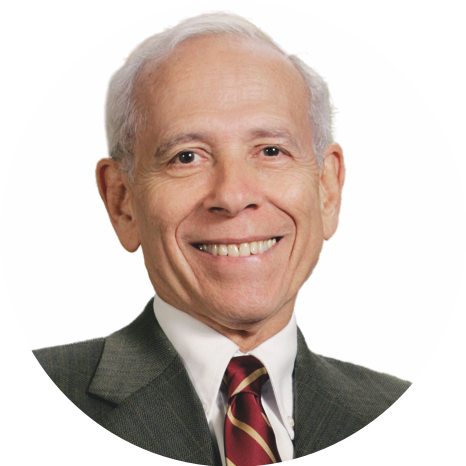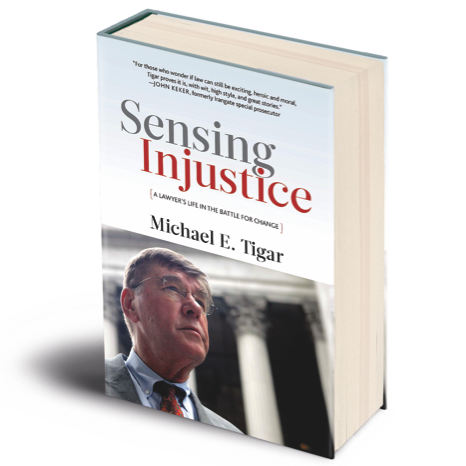Faculty Notes
Fall 2021

Arti Rai, the Elvin R. Latty Professor of Law and faculty co-director of the Center for Innovation Policy, was appointed, in April, to serve as a senior advisor in the Office of General Counsel in the U.S. Department of Commerce. In this role, Rai advises on a range of issues involving innovation and technological competitiveness. The Department of Commerce comprises bureaus that include the U.S. Patent and Trademark Office (USPTO), the National Institute of Standards and Technologies, and the International Trade Administration.
Rai is an internationally recognized expert in intellectual property law, innovation policy, administrative law, and health law. From 2009 to 2010, she headed the Office of Policy and International Affairs at the USPTO. In that capacity, she led policy analysis of the patent reform legislation that ultimately became the America Invents Act and worked to establish the USPTO’s Office of the Chief Economist.
Rai recently was the lead investigator on a grant from the Laura and John Arnold Foundation to examine whether the administrative system for patent review established by the America Invents Act is impacting patent terms for small-molecule drugs and large-molecule biologics and thereby affecting the availability of less expensive generic or biosimilar equivalents. It was the first rigorous empirical investigation of the role that the administrative review system, known as the Patent Trial and Appeal Board, is playing relative to federal district courts, previously the sole venue for patent challenges. Her recent scholarship includes “Accountability, Secrecy, and Innovation in AI-Enabled Clinical Decision Software,” 7 Journal of Law and the Biosciences (2020) (with others) and “Clearing Opacity Through Machine Learning,” 106 Iowa Law Review 775-812 (2021) (with W. Nicholson Price II).
Rai regularly testifies before Congress and relevant administrative bodies on innovation-related law and policy issues and regularly advises federal and state agencies on such issues. She is a member of multiple distinguished councils, including the National Academies’ Forum on Drug Discovery, Development, and Translation; the Polaris Advisory Council to the Government Accountability Office; and the American Law Institute. She has also served as a member of the National Advisory Council for Human Genome Research, as a public member of the Administrative Conference of the United States, and on numerous National Academies committees.

Christopher Schroeder, the Charles S. Murphy Professor Emeritus of Law and professor emeritus of public policy, has been confirmed by the U.S. Senate to be assistant attorney general for the Office of Legal Counsel (OLC) in the U.S. Department of Justice, by a 56-41 vote. President Joe Biden announced his nomination in April. Schroeder has led the office as acting assistant attorney general since Jan. 20.
The OLC provides legal advice to the president and all executive branch agencies, drafting legal opinions of the attorney general and providing its own written opinions and other advice in response to requests from the counsel to the president, the various agencies of the executive branch, and other components of the Department of Justice. The OLC is also responsible for reviewing and commenting on the constitutionality of pending legislation and for approving the form and legality of executive orders and substantive proclamations issued by the president.
Schroeder, who led the Department of Justice agency review team for the Biden-Harris transition, previously worked in the OLC during the Clinton administration, serving as deputy assistant attorney general from 1993 to 1996 and acting assistant attorney general in 1996. He served as assistant attorney general for the Justice Department’s Office of Legal Policy during the Obama administration, from 2010 to 2013. His earlier government service included posts as chief counsel to the U.S. Senate Committee on the Judiciary (chaired by then-Sen. Biden) and in the U.S. Department of Justice.
A member of the Duke Law School faculty since 1979, Schroeder taught Property as well as courses on Congress, federal policymaking, environmental law, and cybersecurity, among others, before retiring from teaching in 2020. In 1998, he established the Program in Public Law to promote an understanding of public institutions, of the constitutional framework in which they function, and of the principles and laws that apply to the work of public officials. His scholarship focuses on constitutional law, Congress, and the scope of executive power, as well as environmental law. His books include Keeping Faith with the Constitution (Oxford University Press, 2010), which he wrote with Pamela Karlan and Goodwin Liu, and Presidential Power Stories (Foundation Press, 2009), a collection he edited with Curtis Bradley.An elected member of the American Law Institute, he is also co-author of a leading environmental law casebook, Environmental Regulation: Law, Science and Policy (8th Edition, 2018), with Robert Percival, Alan Miller and James Leape.

Three members of the Duke Law faculty — Professors Walter Dellinger, Margaret H. Lemos, and David F. Levi — are serving on the Presidential Commission on the Supreme Court of the United States, by appointment of President Joseph R. Biden, Jr. Professors Neil Siegel and Marin Levy both testified before the commission in July.
In early April, the president issued an executive order forming the commission, comprised of a bipartisan group of experts on the Court and the Court reform debate including scholars, former jurists, practitioners, and advocates. Charged with providing an analysis of the principal arguments in the contemporary public debate for and against Supreme Court reform, the commission held public meetings to gather diverse perspectives on a range of matters, such as the genesis of the reform debate, the Court’s role in the constitutional system, terms and turnover of justices, the membership and size of the Court, and the Court’s case selection, rules, and practices.
Dellinger is the Douglas B. Maggs Professor Emeritus of Law and a partner at O’Melveny & Myers. He served in the White House as assistant attorney general and head of the Office of Legal Counsel (OLC) from 1993 to 1996 and was acting solicitor general for the 1996-97 term of the U.S. Supreme Court. He has argued 25 cases before the Court and has testified more than 30 times before committees of Congress.
Lemos is the Robert G. Seaks LL.B. ’34 Professor of Law, faculty co-advisor for the Bolch Judicial Institute and former associate dean for Faculty and Research. She is a scholar of constitutional law, legal institutions, and procedure. Her current research focuses on the institutions of law interpretation and enforcement, including both public and private lawyers, and their effects on substantive rights. Lemos is also a co-author of a new multidisciplinary coursebook on judicial decision making.
Levi, the Levi Family Professor of Law and Judicial Studies and director of the Bolch Judicial Institute, was previously the James B. Duke and Benjamin N. Duke Dean of Duke Law School. Immediately prior to his appointment at Duke in 2007, Levi was the Chief United States District Judge for the Eastern District of California with chambers in Sacramento and earlier served the United States attorney for the Eastern District of California. He has served as member and chair of two U.S. Judicial Conference committees — the Advisory Committee on the Civil Rules and the Standing Committee on the Rules of Practice and Procedure. He is a past chair of the American Bar Association’s Standing Committee on the American Judicial System, and currently is president of the American Law Institute.
Levy and Siegel, the David W. Ichel Professor of Law and Professor of Political Science and director of Duke Law’s D.C. Summer Institute on Law and Policy, testified at a meeting of the commission conducted virtually on July 20, on a panel focused on the Court’s composition.
An expert in judicial administration and federal courts who directs the Program in Public Law, Levy provided information in her written testimony about recent changes and attempts to change the size of state supreme courts, the subject of her recent paper “Packing and Unpacking State Courts,” (61 William & Mary Law Review 1121-1158 (2020.) She earlier testified before the House Judiciary Committee Subcommittee on Courts, Intellectual Property, during a hearing on expanding the federal appellate judiciary.
Siegel’s written testimony reviewed the constitutionality and justifications of court packing, as well as the negative effects on the perceived legitimacy of the Court that court packing might provoke. He noted that two other reform proposals — term limits for Justices and expanding and diversifying the federal courts of appeals — “would enhance both the legitimacy and the accountability of the federal court system as a whole.”
Siegel’s scholarship addresses a variety of areas of constitutional law and, in doing so, considers ways in which a methodologically pluralist approach can accommodate changes in society and the needs of American governance while remaining disciplined and bound by the rule of law. He has served as special counsel or advisor to both U.S. Senators Christopher Coons and Joseph R. Biden during the U.S. Supreme Court confirmation hearings of five sitting justices.

Professor Marin K. Levy testified virtually before the House Judiciary Committee Subcommittee on Courts, Intellectual Property, and the Internet on Feb. 24 during a hearing on expanding the federal appellate judiciary.
“Based upon my research, I believe that Congress should authorize new judgeships for the courts of appeals to keep pace with higher caseloads — as it has done, traditionally with bipartisan support, nearly 30 times before,” Levy said during the hearing titled “The Need for New Lower Court Judgeships, 30 Years in the Making.”
Levy’s work has been published or is forthcoming in the Yale Law Journal, University of Chicago Law Review, University of Pennsylvania Law Review, Cornell Law Review, and California Law Review, among other scholarly journals, and has been discussed in the New York Times, Washington Post, Atlantic, and other public outlets. She is a co-author of Federal Standards of Review: Appellate Court Review of District Court Decisions and Agency Actions (2nd ed.) with Judge Harry T. Edwards and Linda A. Elliott.

Professor Gina-Gail Fletcher testified about the rise of “meme stocks” and their impact on the capital markets during a March 9th hearing of the U.S. Senate Committee on Banking, Housing, and Urban Affairs.
Fletcher, whose research focuses on financial regulation, market manipulation, and corporate law, appeared during a hearing titled “Who Wins on Wall Street? GameStop, Robinhood, and the State of Retail Investing.”
“Today, it is easier, cheaper, and faster to trade more complex and leveraged financial products than ever before,” Fletcher said. “This new market reality requires that we rethink the risks that accompany these developments and, in so doing, consider what types of markets we want to create and encourage from a policy perspective.”
Fletcher joined the Duke Law faculty in July 2020 from the Indiana University Maurer School of Law where she was an associate professor of law. Her current research focuses on the interplay of public regulation and private ordering in enhancing market stability and integrity, and her recent scholarship has been published or is forthcoming in the New York University Law Review, the Duke Law Journal, and the Iowa Law Review.
Prior to entering academia, Fletcher was an associate at Gibson Dunn & Crutcher in Washington, D.C., where she specialized in securities regulation, mergers and acquisitions, banking, and corporate governance.

Professor Thavolia Glymph’s 2020 book, The Women’s Fight: The Civil War’s Battle for Home, Freedom, and Nation, (UNC Press), has received multiple awards, including three from the Organization of American Historians: the Civil War and Reconstruction Book Award for the most original book on the coming of the Civil War, the Civil War years or the Era of Reconstruction; the Darlene Clark Hine Award for best book on African American women’s and gender history and the Mary Nickliss Prize for “most original” book in U.S. women’s and gender history. It also received the 2021 the John Nau Prize for best book on the American Civil War era and the Society of Civil War Historians’ Tom Watson Brown Book Award.
The Women’s Fight explores the role of women during the Civil War and shows the complicated battles that women — Black and white, enslaved and free — took on to define the meaning of freedom, home, and nation in the North and South.
In recognition of her career impact, Duke University named Glymph the Peabody Family Distinguished Professor of History, effective July 1. She holds a secondary appointment at Duke Law.

James Coleman, Jr., the John S. Bradway Professor of the Practice of Law, director of the Center for Criminal Justice and Professional Responsibility, and director of the Wrongful Convictions Clinic, was honored by the North Carolina Bar Association (NCBA) as a “Legal Legend of Color” at an awards celebration held June 18. The award honors “attorneys and other legal professionals of color whose legacies represent ceilings broken for all attorneys who follow in their footsteps and whose impacts on the legal profession are undeniable,” the NCBA said in a statement.
The NCBA highlighted Coleman’s entire career, which has included government service and private practice. He served as an assistant general counsel for the Legal Services Corporation, chief counsel for the U.S. House of Representatives’ Committee on Standards of Official Conduct, and deputy general counsel for the U.S. Department of Education. Immediately prior to joining the Duke Law faculty in 1996, he was a partner at Wilmer, Cutler & Pickering in Washington, D.C., where he specialized in federal court and administrative litigation. He also represented criminal defendants in capital collateral proceedings and was an active participant in his firm’s pro bono program. He chaired the American Bar Association’s Section of Individual Rights and Responsibilities and the ABA Death Penalty Moratorium Implementation Project, and has served on various state commissions focused on wrongful convictions, the death penalty, and criminal justice generally.
In addition to teaching Criminal Law and supervising students in the Wrongful Convictions Clinic, Coleman co-founded the Law School’s Appellate Litigation Clinic. His scholarship, largely conducted through the Center for Criminal Justice and Professional Responsibility, centers on the legal, political, and scientific causes of wrongful convictions and how they can be prevented. His administrative work for Duke University has included chairing the Lacrosse Ad Hoc Review Committee and the Duke Athletic Council.


Clinical Professor Jamie Lau ’09 and Senior Lecturing Fellow Thomas Maher received awards from North Carolina Advocates for Justice (NCAJ) in June. NCAJ is a nonpartisan association of legal professionals dedicated to empowering a strong community of trial lawyers by protecting people, preventing injustice, and promoting fairness.
Lau, the supervising attorney in the Wrongful Convictions Clinic, faculty advisor to the Innocence Project, and deputy director of the Center for Criminal Justice and Professional Responsibility, shared NCAJ’s Kellie Crabtree Award with clinic client Ronnie Long. The award is given to an attorney and their client in cases when the client’s story and the attorney’s representation has made a real difference in protecting people’s rights. Lau served as lead attorney in the clinic’s successful representation of Long, who was imprisoned for 44 years following a 1976 rape trial tainted by police misconduct and the suppression of exculpatory evidence. Released on Aug. 27, 2020, Long was granted a complete pardon of innocence by Gov. Roy Cooper in December.
Maher received the NCAJ’s Thurgood Marshall Award, “established to recognize extraordinary and selfless service to the people of North Carolina,” according to the organization’s website.
Maher, who teaches Trial Practice and Criminal Trial Practice, is a criminal litigation attorney with the Law Offices of Amos Tyndall and previously served as the inaugural executive director of the Wilson Center for Science and Justice at Duke Law. For 11 years he was executive director of North Carolina’s Indigent Defense Services, the state agency that oversees the provision of indigent representation in North Carolina, and earlier was executive director of the Center for Death Penalty Litigation, which represents clients on death row, trains lawyers involved in post-conviction litigation, and provides assistance and training for lawyers involved in capital trials.

Clinical Professor Crystal Grant has been named director of the Children’s Law Clinic, which provides legal advice, advocacy, and representation to low-income children and families on matters relating to special education, school discipline, and children’s disability benefits. She had served as interim director since July 2020.
Before joining the faculty as the clinic’s supervising attorney in 2018, Grant was a clinical fellow in the Pediatric Advocacy Clinic at the University of Michigan Law School. She earlier was special education attorney for Disability Rights Michigan and served as an adjunct professor at Spring Arbor University. She holds an MSW from the University of Michigan and received her JD from Michigan State University College of Law.
Grant has used her dual perspective as an attorney and social worker to forge new community partnerships for the clinic, which is now an official field placement site for students from the University of North Carolina School of Social Work who consult and collaborate on cases with law students during yearlong internships. This facilitates a holistic approach to client service, with students now also assisting families with non-legal needs such as applying for public benefits, requesting a special-education evaluation, and accessing community resources for homelessness and food insecurity.
A member of the Clinical Legal Education Association’s board of directors, Grant is active in the development and dissemination of best practices in law school clinical education nationwide. She has taken leadership roles in planning continuing education sessions for Duke’s clinical faculty and serves on the Teaching and Learning Committee. Her recent scholarship includes “COVID-19’s Impact on Students With Disabilities in Under-Resourced School Districts,” 48 Fordham Urban Law Journal 127 (2021).

Clinical Professor Ryke Longest became director of clinical programs on July 1, succeeding Clinical Professor Andrew Foster, who served in the role for 15 years and continues to direct the Community Enterprise Clinic.
Longest, who co-directs the Environmental Law and Policy Clinic, will serve a three-year term under a new model intended to facilitate greater delegation of leadership responsibilities and diversity of approach over time as different clinical faculty members take on the position.
A graduate of the University of North Carolina School of Law, Longest joined Duke Law as a senior lecturing fellow and inaugural clinic director in 2007. A joint project of the Law School and Duke’s Nicholas School of the Environment, the clinic enrolls students from both schools who are supervised by Longest and clinic Co-director and Clinical Professor Michelle Nowlin JD/MA ’92 on matters involving environmental justice, climate change, water quality, natural resources conservation, endangered species protection, sustainable agriculture, public trust resources, and environmental health. Longest has a secondary appointment as clinical professor of environmental sciences and policy at the Nicholas School.
Prior to joining the Duke faculty, Longest worked for 14 years at the North Carolina Department of Justice, where he negotiated and led the state’s implementation of two multimillion-dollar settlement agreements that reduced the adverse impacts from swine farming. The impact of waste management remains a signature issue for Longest and the clinic. An article Longest co-authored with Lecturing Fellow Lee Miller, “Reconciling Environmental Justice with Climate Change Mitigation: A Case Study of NC Swine CAFOs,” was selected by the Environmental Law and Policy Annual Review as one of 2020’s best academic environmental law articles.

Nita A. Farahany JD/MA ’04, PhD ’06, the Robinson O. Everett Professor of Law and professor of philosophy, received the 2021 Distinguished Teaching Award during the annual Duke Outstanding and Noteworthy (D.O.N.E.) Awards sponsored by the Duke Bar Association on April 13.
Farahany, the founding director of Duke Science & Society, chair of the Duke MA in bioethics and science policy, and principal investigator of SLAP Lab, teaches first-year Criminal Law and the Amicus Lab, as well as other courses and seminars.
Sasha Kahn ’23, the academics chair for the DBA, read student nominators’ praise for Farahany during the virtual ceremony: “‘What stands out to me every day is her extraordinary vulnerability and her deep commitment to making all of her students feel like human beings. She opens every class asking about our lives, celebrating achievements, engagements, and cute pets. She shares details of her life with us to bring a smile to our faces and help us not feel so alone.’”
Farahany called teaching “a true joy and a privilege that I have been so grateful for every day. I consider this award to be, honestly, the most humbling honor of my professional career.”


Donald L. Horowitz, the James B. Duke Professor Emeritus of Law and Political Science, has published Constitutional Processes and Democratic Commitment (Yale University Press, 2021), his ninth book. Given that an important objective in the process of creating a new constitution is to enhance prospects for democracy, Horowitz argues that constitutional processes ought to be geared to securing commitment to democracy by those who participate in them. Using evidence from numerous constitutional processes, he makes a strong case for a process intended to increase the likelihood of a democratic outcome. Horowitz, who has advised in a number of countries on the matter of constitutional design for divided societies, also assesses tradeoffs among various process attributes and identifies some that might impede democratic outcomes.
Horowitz’s previous books are The Courts and Social Policy (1977), which won the Louis Brownlow Award of the National Academy of Public Administration; The Jurocracy (1977), a book about government lawyers; Coup Theories and Officers’ Motives: Sri Lanka in Comparative Perspective (1980); Ethnic Groups in Conflict (1985, 2000); A Democratic South Africa? Constitutional Engineering in a Divided Society (1991), which won the Ralph Bunche Prize of the American Political Science Association; The Deadly Ethnic Riot (2001); and Constitutional Change and Democracy in Indonesia, published in 2013 by Cambridge University Press and issued in a Bahasa Indonesia translation in 2014.

Professor Emeritus Michael E. Tigar has published a memoir, Sensing Injustice: A Lawyer’s Life in the Battle for Change. In his first U.S. Supreme Court case — at the age of 28 — he won a unanimous victory that freed thousands of Vietnam War resisters from prison. He led the legal team that secured a judgment against the regime of Chilean dictator Augusto Pinochet for the 1976 murders of an opponent, Orlando Letelier, and another in a Washington, D.C., car bombing, and then worked with the lawyers who prosecuted Pinochet for torture and genocide. Tigar has been counsel to Angela Davis, Jamil Abdullah Al-Amin (H. Rap Brown), the Chicago Eight, and leaders of the Black Panther Party, to name only a few of his clients.
Tigar has worked for over 50 years with movements for social change as a human rights lawyer, law professor, and writer. He has taught at law schools in the United States, France, South Africa, and Japan, and is emeritus professor at American University Washington College of Law as well as at Duke. He has authored or coauthored 14 books, three plays, and scores of articles and essays. His book, Law and the Rise of Capitalism, first published by Monthly Review Press, has been translated into Spanish, Portuguese, Greek, Turkish, and Chinese.

